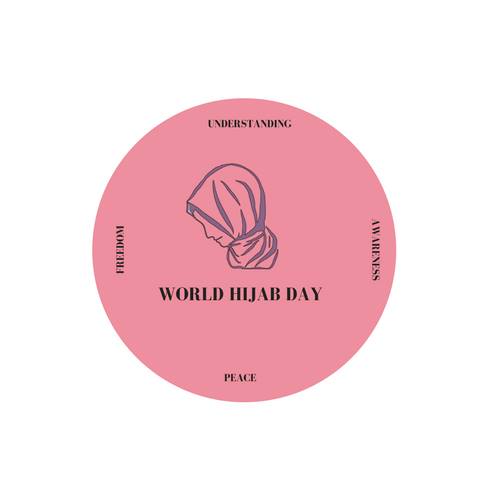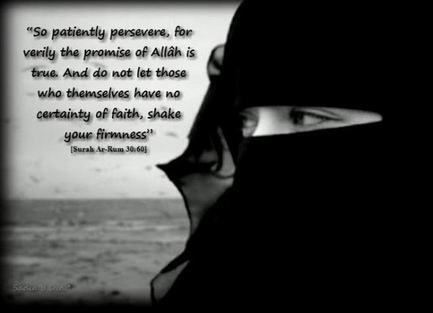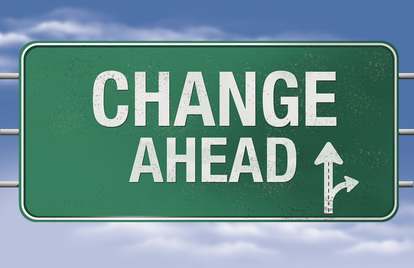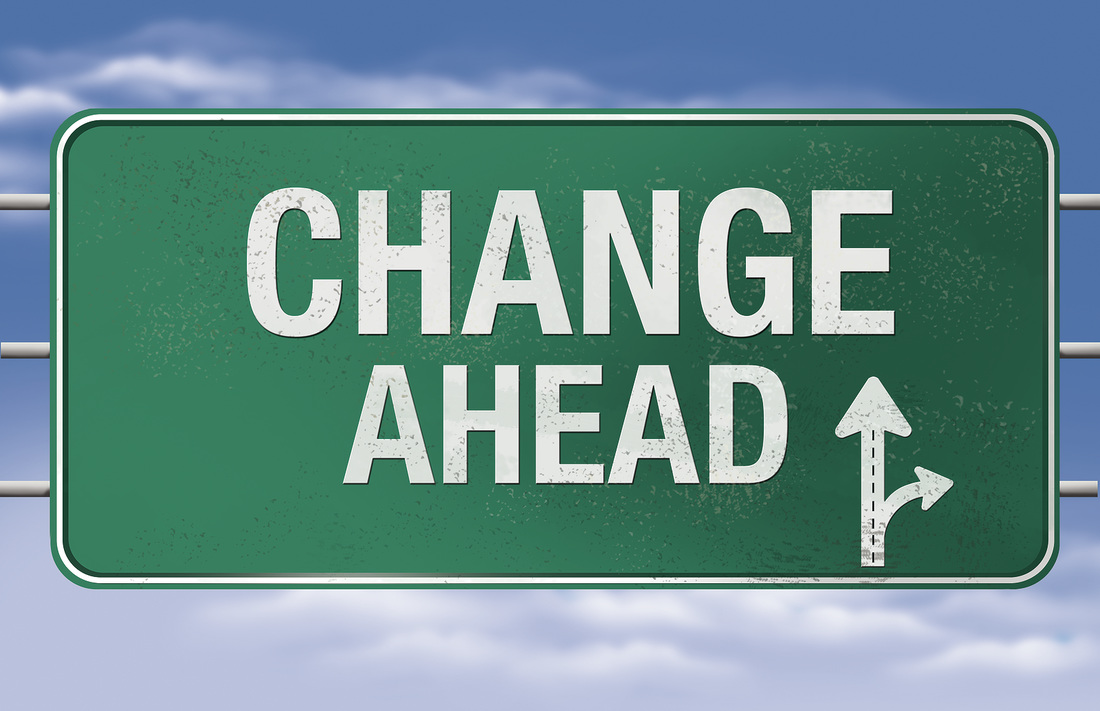Girl With A Scarf Writes:
https://girlwithscarfblog.wordpress.com/2018/01/31/what-happened-when-i-put-a-scarf-on/ Hidden Pearls: https://www.hidden-pearls.co.uk/the-hijab-diaries/world-hijab-day-celebrating-muslimahs/ Mona Ismaeil(The Modern Hijabi) https://www.mymodernhijab.com/single-post/2018/01/31/World-Hijab-Day-What-Does-Hijab-Mean-To-Me Ramsha Rose: http://www.ramshaarose.com/2018/02/my-hijab-story-tag-world-hijab-day.html The Women Network: Understanding Psychological Implications for Women Who Face Hijab Prejudice http://www.thewomenetwork.com/world-hijab-day-understanding-psychological-implications/ And of course, you can read the hijab story of our very own Lady_Meansie: That Thing On Your Head What about you? What led you embracing hijab?
1 Comment
"Best of woman is who does not look at man, nor does she allow men to look at her" Fatima(RA)-Daughter of the Prophet(SAW)" We’ve all seen them. Those women who are clad in all black. Those women who wear gloves and socks in 80 degree weather. Those women who the only thing you can see of them is their eyes. Those women are all wearing the niqab(face covering that leaves a slit open for the eyes). In Islam, there are various opinions in regards to whether or not it is obligatory to wear it. All reputable scholars, based on the Qur’an and Sunnah, are in agreement that all Muslimahs should observe hijab, which at minimum consists of the khimar and the jilbab. All scholars are also in agreement that all of the Umm ul-Mumineen(Mothers of the Believers/ wives of the Prophet(SAW) wore the niqab. Many scholars are of the opinion that niqab is not fard BUT it is better to wear it, especially in the west where it is the norm to gaze upon members of the opposite sex. Also, the niqab does not have to be black. At the end of day, whether or not you think niqab is fard, there is nothing wrong with wearing it and the chances of you causing fitnah is lowered.
The niqab is often seen as something extreme by Muslims and non-Muslim. Something that is extra and not really necessary. Despite our opinion on the matter, we should not look down upon those who observe niqab nor should we consider them extreme simply because they choose to cover their faces. We don’t know what their intentions are but we do know that Allah(SWT) has guided them towards it and should therefore be happy for them. Many people think that munaqabat(those who wear niqab) are these raging haram police-like women who don’t smile or socialize and are always waiting to criticize. Yes, there are some who are like this but you can find that among those who don’t wear niqab as well. Some also think that these women are stupid, brainwashed and oppressed. In actuality, that is no where close to being true. Most of the munaqabat that I know are the most kindest individuals and are really fun to be around and many of them are university graduates. Some munaqabat believe that it is mandatory to wear the niqab and some just feel like when they were only observing hijab, they still received unwanted glances so they decided that by covering their faces, even if people looked, they wouldn’t be seeing much. Based on the Qur’an and Sunnah, I do not think that it is obligatory to wear the niqab but I do think it is highly favoured and something that, if done for the sake of Allah(SWT), will result in major ajr(reward) for you. Have I thought about wearing the niqab? Yes, definitely. That is not something that I share with most people, which I’m sure you’ll know why if you’ve read the posts about my hijab journey. I don’t see anything wrong with niqab. Wearing it actually kind of makes sense. When someone is checking someone out, usually the first thing that they will look at is their face because that is wear outer beauty mostly lies. So if I’m trying to reduce fitnah and be as modest as possible, the logical decision is to cover my face. Besides, the Umm ul-Mumineen were munaqabt and they are considered to be the best examples of Muslim women so shouldn’t we all aspire to be like them in every way that we can? When you start to make visible changes to your life, you will learn that people will start attacking you for your smallest faults. It’s their way of saying “see, you did this wrong, you’re not actually a good person or that religious”. One of my experiences with this was when I was at a predominantly Muslim bbq held by a close friend. I was really hungry and did not even think to ask if the meat was halal(naturally due to my assumption that a Muslim hosted event would only serve halal food). As soon as I took my first bite(Astagfirullah), a ‘friend’ stated “I thought you only eat halal meat, what happened?’, I just calmly replied that I forgot that it wasn’t. Later that night, another attendant at the bbq called me and asked why was it that I only stopped eating the meat when someone pointed it out, to which of course I replied that I forgot it was not halal. The conversation then turned to this accusation that I only “pretend to be halal only” which is why I didn’t notice till it was pointed out. The fact that a simple case of my stomach taking control over my brain turned into me being called a hypocrite is very sad but is something that can happen often when people feel like you’re ‘being too' religious. I can list numerous examples of situations where I’ve made mistakes and people have taken those opportunities to capitalize on their belief that it is impossible to fully adhere to Islam.
Another majour scenario that can erupt from you making visible changes or sharing knowledge with others is that people assume you think you know everything. I know for a fact that I do not know everything about Islam, for example, my knowledge of fiqh or stories of the sahaba are seriously lacking, therefore I do not portray myself to know these things, though I am always trying to learn. Some individuals though, upon discovering that you don’t know a certain thing will capitalize on it. In one instant I received laughter as well as(in front of an entire class by the way) “see just because she might look religious doesn’t mean she really knows anything”. At the time, it was embarrassing and upsetting but later all I could think was that if this person wanted to point out how unreligious I was, he should have demonstrated proper adab and simply moved on with the class(he was the teacher). While some of these negative reactions might come from a lack of knowledge and proper adab from those dishing it, many times, especially when they are coming from other Muslims, it’s a sign of discontent within themselves. If you all of a sudden stop engaging in haram things and become more adherent, they begin to perceive it as if you are telling them that they are practicing incorrectly or not good enough. If you all of a sudden go from wearing just the scarf to full hijab, there will be those who only wear the scarf or who observe hijab inappropriately who will perceive this is as if you’re trying to be better than them. I personally do not like to make people feel this way so there have been times where for instance, if I was with a Muslim friend or family member and it was time to perform salah, instead of pausing our activity to pray, I would just continue. I did not want to come across as if I was reminding them that they had yet to pray or as if I was trying to “outdo their Muslimness”. Alhamdulilah, I rarely ever do this anymore and have come to the decision that my submission to Allah ultimately outweighs having to make someone feel better about themselves and quite possibly, my reminder might be what is needed to get the person back on track Islamically. As I stated previously, I generally prefer to not be in the spotlight. I do not like being labeled the ‘religious’ one, I do not like to be singled out and I do not like having every mistake or flaw that I have being broadcast. Not because I want people to think that I am perfect or all-knowing but because their reactions and comments are just uncomfortable and are derived from ill intentions. If ’you've read my short bio in the ‘About’ section, you already know that although I was born Muslim, besides the very basic tenets(salah, Ramadan, Jummah), I was not taught any other actual Islamic practices. Alhamdulilah, I was able to begin learning on my own and adapt this knowledge to my life. Many people who have watched me grow, believe that I have ‘found God’ and therefore going through this immense spiritual journey. There are even some people, family included, who believe that this is all just a phase and are constantly waiting for the day where I trade in my scarf and jilbab for a mini dress. inshaAllah, that never happens. Personally, I don’t think I've ‘found God’, mainly because I've never lost Him. I have always believed in him. It just took me gaining knowledge to fully embrace Him.
From a young age, I've always been excited about Islam. I remember looking forward to the “Middle East” section in Social Studies class because they always spent like a chapter talking about Islam. While I obviously covered my hair when I went to the masjid and when I prayed salah, I didn't really know much about covering, modesty or hijab, I do remember always admiring it. One instant that I can think of is when I forgot to take my scarf off after leaving the masjid one day and went to a store. There was this little girl who was also covered and the instant we made eye contact she smiled. I always remember that day because simply by wearing the scarf, it seemed we shared something. As I got older(early teenage years), I began to look into Islam more and believe it or not, it was also around this time that I received my first English Qur’an. I am not sure why but before then the thought of actually knowing what the Qur’an said never really came to me. As I began reading and learning, I started wanting to adapt more things to my life. Unfortunately, due to certain circumstances, I couldn't practice as much as I wanted but I did make it a point to perform salah and read more Qur’an. By the time I finished high school, I decided that I really wanted to start taking my deen more seriously. I wanted to be a pleasant, respectful, Allah-abiding Muslim. No, I did not start covering right away. I did start with changing my behaviour to align more with proper Islamic adab. Understand though, that I was not this horrible, rude, loose child, I just had the habit of being very short with people and engaging in activities that did not align with the proper mannerisms of a Muslim.. Throughout my first year in university, I probably was not the best example of a Muslim and did many things that I am not necessarily proud of, Alhamdulilah though, none of my ill-actions had lasting effects so I have been able to move forward. Although I knew that I wanted to be ‘a better’ Muslim, I wasn't sure about how to go about it. I am a person who does not like much attention so my main worry was not so much about people judging me or not liking my changes but more so that I didn't want to have to deal with explaining these changes. This reluctance to explain myself also stems from the fact that I think people expect this deep profound explanation when really, for me, it was very simple- I believed in God, I believed that all the things He said in the Qur’an were right, so therefore why I shouldn't I abide by them. When I started university, I lived a bit far from home so I was able to maneuver without anyone really knowing who I was. By the end of my first year in undergrad, I decided to start wearing the scarf. While I did cover my hair, I was not observing proper hijab at all. I wore short skirts, mini-dresses, etc. I honestly didn't know what I was doing at all but I did know that that was not appropriate, I just wanted to try it. At the end of that year, I went back home for the summer holidays and stopped covering because again, I did not want to deal with the questions. Mid-way through the summer, I accepted a job back at the university and was able to move back on campus and reinstated the wearing of my scarf. I loved it! I loved praying my prayers on time, I loved the sense of slight modesty that I felt. At the end of the summer, I chose to switch schools and therefore moved back home-this of course meant no scarf. It was interesting, you always hear about girls who observe hijab when leaving home then take it off right before they get to school. Well I was the opposite of that. I would leave the house in my spring dresses and then throw on a scarf and sweater when I got on the bus to school. Eventually this became really difficult and I was literally ALWAYS TERRIFIED that someone would see me and tell my family, so eventually I gave up and stopped wearing it. A couple of months later, I realized that I hated not covering more than I disliked having to hide it so I just started covering again. I didn't make an announcement of it I just did it. Overall, things went well. Family wise, the only awkward moments were when I was expected to uncover for parties. |
INTRODUCTIONThe "Muslimah Worries" section of Striving Clarity is dedicated to discussing the things that Muslimahs often worry about from hijab to marriage to how to remain spiritual when you're unable to pray. Join us! Archives
October 2022
Categories
All
|




 RSS Feed
RSS Feed